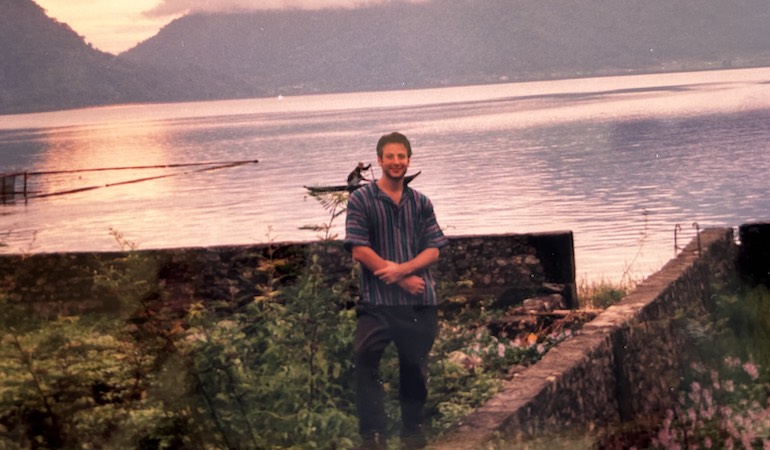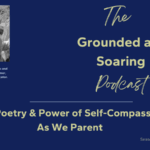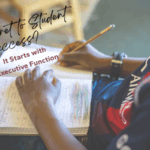At age twenty-one, and five days after I graduated from college, I moved to Sumatra, Indonesia. Sent by the organization “Volunteers in Asia,” I spent the next year focused on educating Indonesian youth on HIV/AIDS prevention. The small non-profit for which I worked had an office staff of about eight men and women of various ages. When I first met my co-workers, I could not see anything at all that I had in common with them.
They looked different—a few of the women wore hijabs; they spoke a language I was only just beginning to understand; their mannerisms, food, and ways of being were, by my standards, off; and I knew also, as devote Muslims, their belief system about the fundamental nature of reality was unlike mine; I couldn’t connect. Totally unlike me, they stopped everything five times a day, every day, to pray–touching their heads to the ground over and over. They were foreign. They were “other.” For the next many months though, I spent six days a week working with these folks and the many Sumatran volunteers who frequented the office.

Soon I was also attending family birthday parties for their nieces and nephews, taking holiday bus trips with them down to the beach, and celebrating with their families and neighbors the joyous holiday of Eid al-Fitr, the “breaking of the fast” celebration that marks the end of Ramadan and is focused on family, forgiveness, and food.
By the time I left Sumatra, these people, who at first were so foreign to me, were and still are, my dear friends. More than that, they had become complete, each an individual, unique, three-dimensional person to me. And, I had come to understand our shared humanity: like me, and like all humans, they loved their families, yearned to see a better world that is free from conflict, laughed and were silly, cried and were serious…they felt just as deeply as I did the joys and pains and complexities of life as a human.
I returned home proud and grateful for my country and my U.S. citizenship, and with also, in my heart, a strong sense of connection and care for all humans everywhere.
One year recently, our Marin Montessori Upper Elementary students and about fifteen of our Junior High students flew to New York City and participated in the Montessori Model United Nations*. Before leaving they engaged for many months in in-depth studies about other countries and specific political issues of serious international and environmental import.
Once in New York, our students came together with 2,700 other students from Montessori schools from around the world (one-third of those students came to New York from different countries and learned English as their second language).
Together, they took on further study and debated the right strategies for moving our world forward in a positive direction. They made speeches, engaged in rich intellectual inquiry, expressed fierce differences of political opinion, and, made new friendships.
By the end of their time at MMUN, our students were further on their own paths toward global citizenry, recognizing their shared humanity and the interconnection of all humans in impacting the state of the planet now and for the future. This is invaluable.
Many of us have at times pondered the question, What will lead to a more peaceful and healthy world? A tremendously complex question for which there is certainly no one single or glib answer. However, based on what I learned from my time as a young man in Sumatra during which the “other” became dear and human and real to me, I understand in my bones this: All humans everywhere share a common bond and experience in being alive that gives them worth and dignity, no more or no less than my own.
It was only through leaving my comfort zone and breaking bread with those I saw as foreign that I could glean this invaluable, life-giving understanding. I am so grateful that many of our MMS students had that experience in New York to gather with other youth from around the world to focus their minds beyond their immediate concerns and to contemplate and plan for a better tomorrow.
I don’t know all that will lead humanity to a more peaceful, healthy world. Certainly though, when people see themselves in each other and respect the worth of humans from every spot on the planet, this will help guide us toward the wisest approaches.
Finally, here is a prose poem, “Gate A-4” by contemporary poet Naomi Shihab Nye that captures beautifully the grace that befalls us when we drop our guard a bit and meet each other’s humanity:
Wandering around the Albuquerque Airport Terminal, after learning my flight had been delayed four hours, I heard an announcement: "If anyone in the vicinity of Gate A-4 understands any Arabic, please come to the gate immediately." Well—one pauses these days. Gate A-4 was my own gate. I went there. An older woman in full traditional Palestinian embroidered dress, just like my grandma wore, was crumpled to the floor, wailing. "Help," said the flight agent. "Talk to her. What is her problem? We told her the flight was going to be late and she did this." I stooped to put my arm around the woman and spoke haltingly. "Shu-dow-a, Shu-bid-uck Habibti? Stani schway, Min fadlick, Shu-bit- se-wee?" The minute she heard any words she knew, however poorly used, she stopped crying. She thought the flight had been cancelled entirely. She needed to be in El Paso for major medical treatment the next day. I said, "No, we're fine, you'll get there, just later, who is picking you up? Let's call him." We called her son, I spoke with him in English. I told him I would stay with his mother till we got on the plane and ride next to her. She talked to him. Then we called her other sons just for the fun of it. Then we called my dad and he and she spoke for a while in Arabic and found out of course they had ten shared friends. Then I thought just for the heck of it why not call some Palestinian poets I know and let them chat with her? This all took up two hours. She was laughing a lot by then. Telling of her life, patting my knee, answering questions. She had pulled a sack of homemade mamool cookies—little powdered sugar crumbly mounds stuffed with dates and nuts—from her bag—and was offering them to all the women at the gate. To my amazement, not a single woman declined one. It was like a sacrament. The traveler from Argentina, the mom from California, the lovely woman from Laredo—we were all covered with the same powdered sugar. And smiling. There is no better cookie. And then the airline broke out free apple juice from huge coolers and two little girls from our flight ran around serving it and they were covered with powdered sugar, too. And I noticed my new best friend—by now we were holding hands—had a potted plant poking out of her bag, some medicinal thing, with green furry leaves. Such an old country tradition. Always carry a plant. Always stay rooted to somewhere. And I looked around that gate of late and weary ones and I thought, This is the world I want to live in. The shared world. Not a single person in that gate—once the crying of confusion stopped—seemed apprehensive about any other person. They took the cookies. I wanted to hug all those other women, too. This can still happen anywhere. Not everything is lost.
Here’s wishing all children everywhere the very best. They are our future.


As Head of School, Sam is responsible for ensuring that Marin Montessori flourishes and that the School’s mission is brought to life each and every day.





